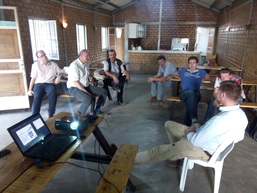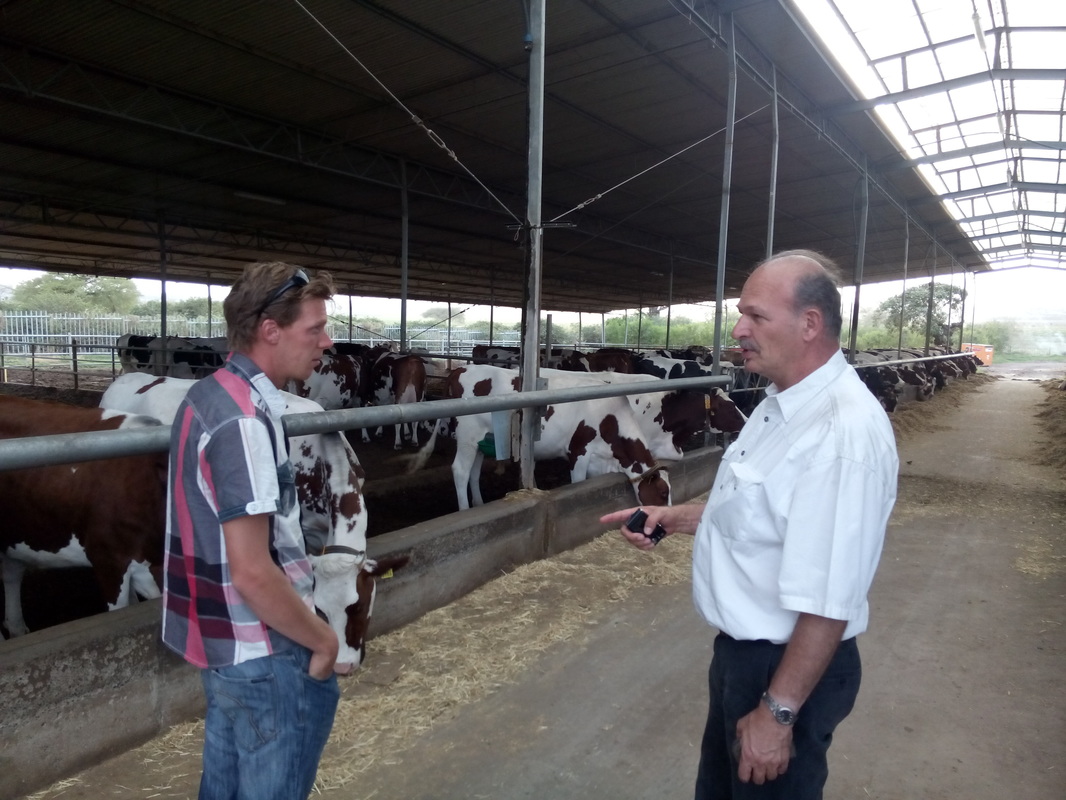 This week was a memorable week for African Economies that took a firm step towards integration of their economies with the Tripartite Free Trade Area (TFTA). Though some criticism refers to it as a small baby step, the relative short process of negotiations between the three major sub-regional groupings (SADC, COMESA and EAC) reflects a good amount of political will. The involvement of sub-regional entities may have been a distinct feature that has helped considerably. Certainly when comparing to the attempt of western economies to connect across the Atlantic in the negotiations on a new Transatlantic Trade Investment Partnership (TTIP). This process saw quite some hick-ups over the last week, facing some fierce opposition in European Parliament linked to differences in environmental standards. What made African economies, that seem so diverse, to relatively easily achieve agreement while Western countries failed to do the same? The answer lies partly in the other theme that was tabled during the 25th AU Summit that is being held in South-Africa this week. African women are increasingly demanding recognition for their role in society. They are often also the economic engines of households and therefore important cornerstones of society. And also in institutions like the African Development Bank and other important actors in the area they are maintaining important positions. They seem to have less trouble allowing some of the male leadership at the Heads of State level to claim some victories as long as they can set the agenda's. This certainly has happened this year with the theme of the summit: YEAR OF WOMEN EMPOWERMENT AND DEVELOPMENT TOWARDS AFRICA’S AGENDA 2063 The theme shows two things: Women empowerment is high on the agenda and the time horizon chosen shows attention to long-term planning and impact, beyond many of the current leaders' life span. Another reason for the difference between the pace in Africa and slow pace in Europe may be found in the absence of strong institutions at state level in most African nations. State leaders are therefore less constrained by what their citizen want. Most of the institutions that are functioning at state level are relatively young and have not necessarily resulted from endogene processes of establishing common norms or solidifying patterns of behaviour. Hence having these states decide together on new transnational institutions (that have more of a free trade than of a common market feature at present) will have much less bearing on national decision-making processes. It will inform them though and from that point of view deserve serious attention. Nevertheless, whatever the male dominated summit will discuss today on free trade, terms of presidents to remain in office, peace and security and migration (possibly behind closed doors), women will be important drivers of change, not to be neglected. Listen to what Africa women want...
2 Comments
 At tomorrows second strategy discussion of EP-Nuffic, Capacity Building takes centre stage. In preparation to the event. I would like to share my thoughs on this topic, after two months of intensive engagement with EP-Nuffic networks in the Netherlands and abroad. Having to deliver in the coming two years on Innovation in Capacity Building. What capacities are we talking about and who is building? The invite on the website suggests that it is mainly about EP-Nuffic's capacities as people are invited to contribute to articulate EP-Nuffic's ambitions. From the remainder of the invite you will learn that it is also very much about capacities of educational institutions and people attending them as has been the core business of EP-Nuffic for over 40 years. The draft strategic agenda that is published on the same page reveals that the aim is to bring international and cross-cultural competencies to pupils and students aged 4-24. When it comes to EP-Nuffics capacity building so far was mainly aiming at higher education institutions in developing countries (like in the NICHE programme). And objective of the NFP program has been to reduce shortage of skilled workers in partner countries. How does this link to this new mission of EP-Nuffic to internationalise education in the Netherlands? In answer to that question I only have to consider my own career development, starting in Egypt as 'expert' on irrigation and drainage and later on continuing with FAO as 'Associate Professional Officer' for Agricultural Research and Development. I was selected on the basis of my qualifications and lack of experience. That combination typifies many so called 'professionals' who leave universities confronting their 'Dutch education and upbringing' with the world. The result? Should I say a trail of failures, lack of intercultural sensitivity (that you can only develop in contact with the other), overoptimism about own capacities, neglect of valuable local capacities, and you name it. I think it is part and parcel of living and working abroad. I am still thankful to the Dutch government at the time for allowing me to fail, learn and improve. Supporting young professionals to take steps abroad build their capacity rather than anything else. In fact I should thank my counterparts for allowing me to engage with their challenges and develop my professional skills along. I just returned from Ethiopia where I saw young ambitious development professionals showing similar signals of frustration alongside more seasoned well-networked experts. I would be very much in favour of offering similar opportunities in Europe for talented professionals from Africa. At the same time industries are internationalising at a dazzling speed. This means that options of working cross-culturally develop around the corner. Entrepreneurs are taking the same steep learning curve I did. Bringing these networks together makes perfect sense to me. At the same time, capacity gaps identified by the Dutch businesses are different from those development workers would identify. Rather than lack of highly qualified staff, the entrepreneurs lack sufficiently skilled labour and basically have to provide hands-on vocational training for which some additional support would be welcomed. And bringing their families along, they are in high demand of sufficient quality basic education for their children and started a private school for them. Some teacher training for their employed Ethiopian teaching staff, to make them more versatile with the Dutch educational culture would also be welcomed. |
About meMy name is Reinier van Hoffen. U®Reading
Click here for a summary.
Also find the text of a lecture Dr. Achterhuis held at the 2012 Bilderberg conference. Archives
August 2022
|
AddressNachtegaallaan 26
Ede, the Netherlands |
Telephone+31 (0)6 1429 1569
|
info@uraide.nl
|

 RSS Feed
RSS Feed
















